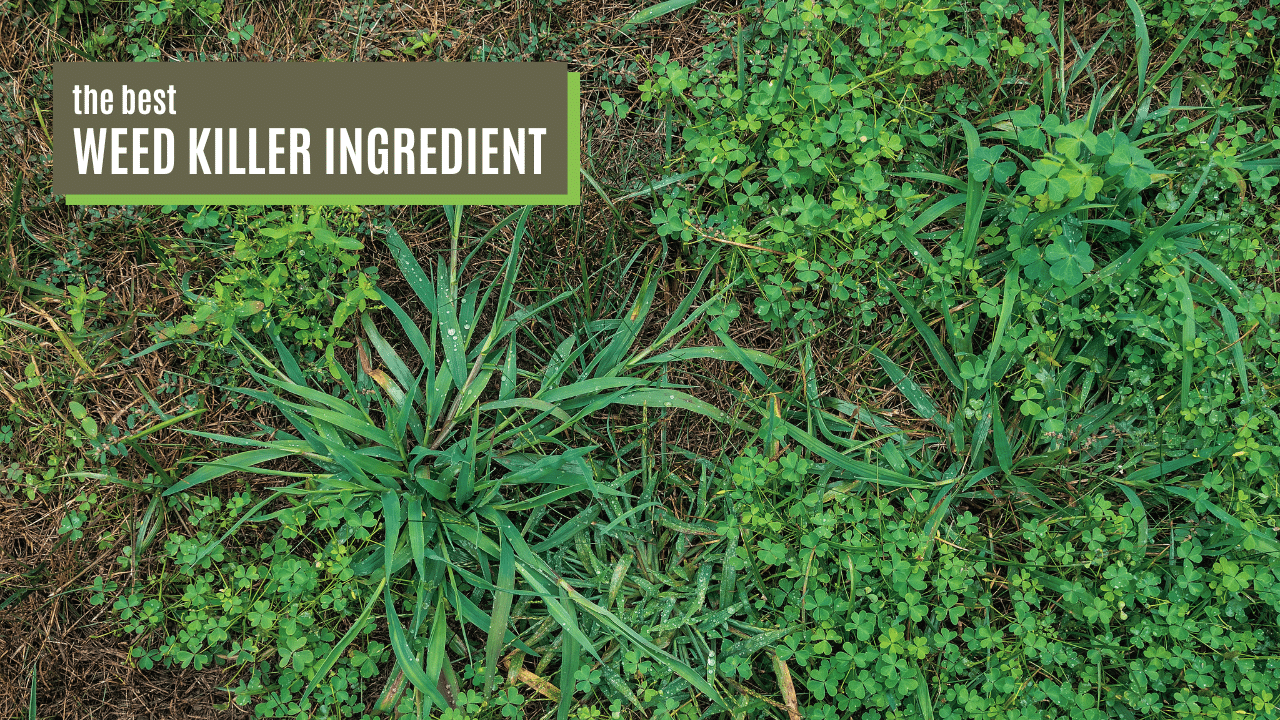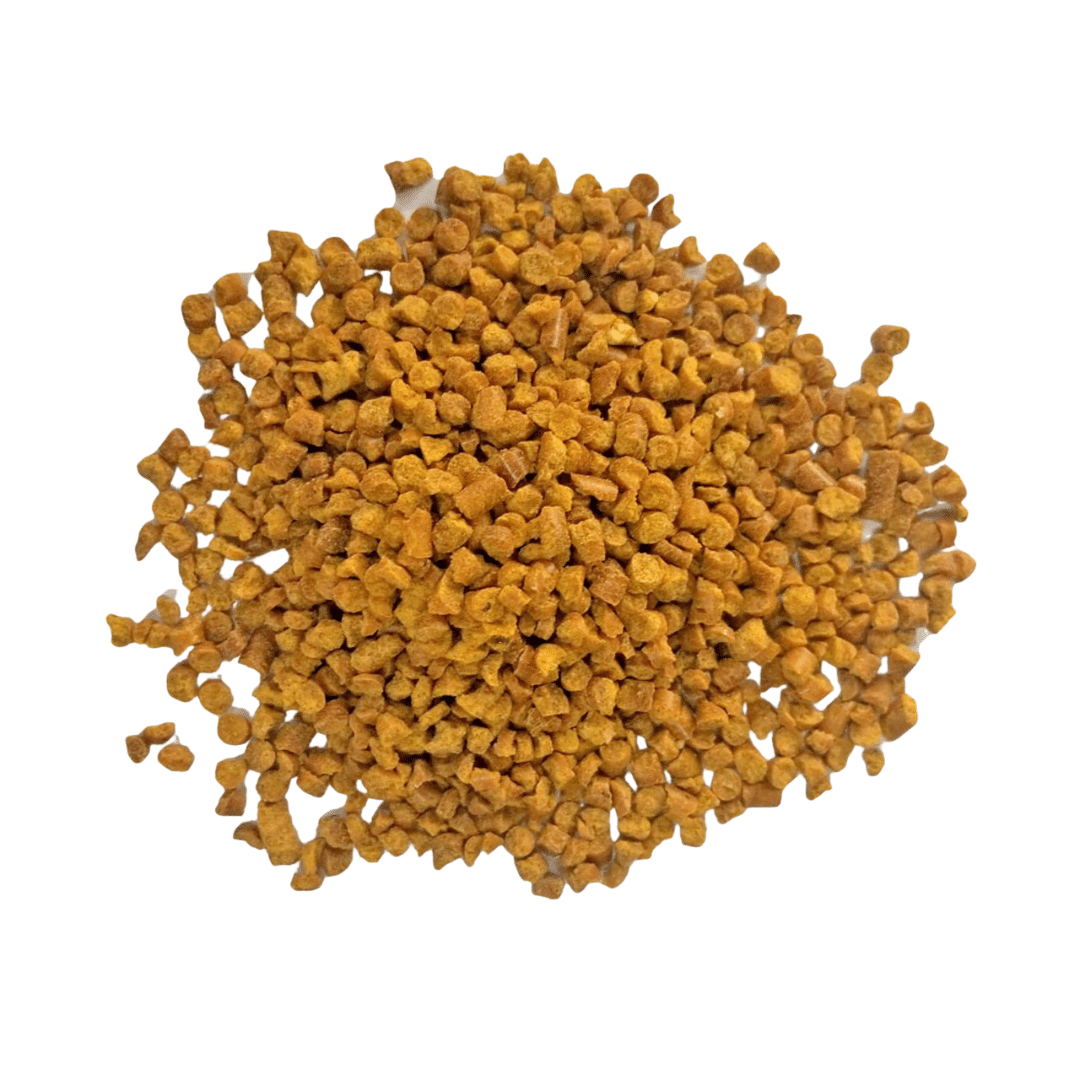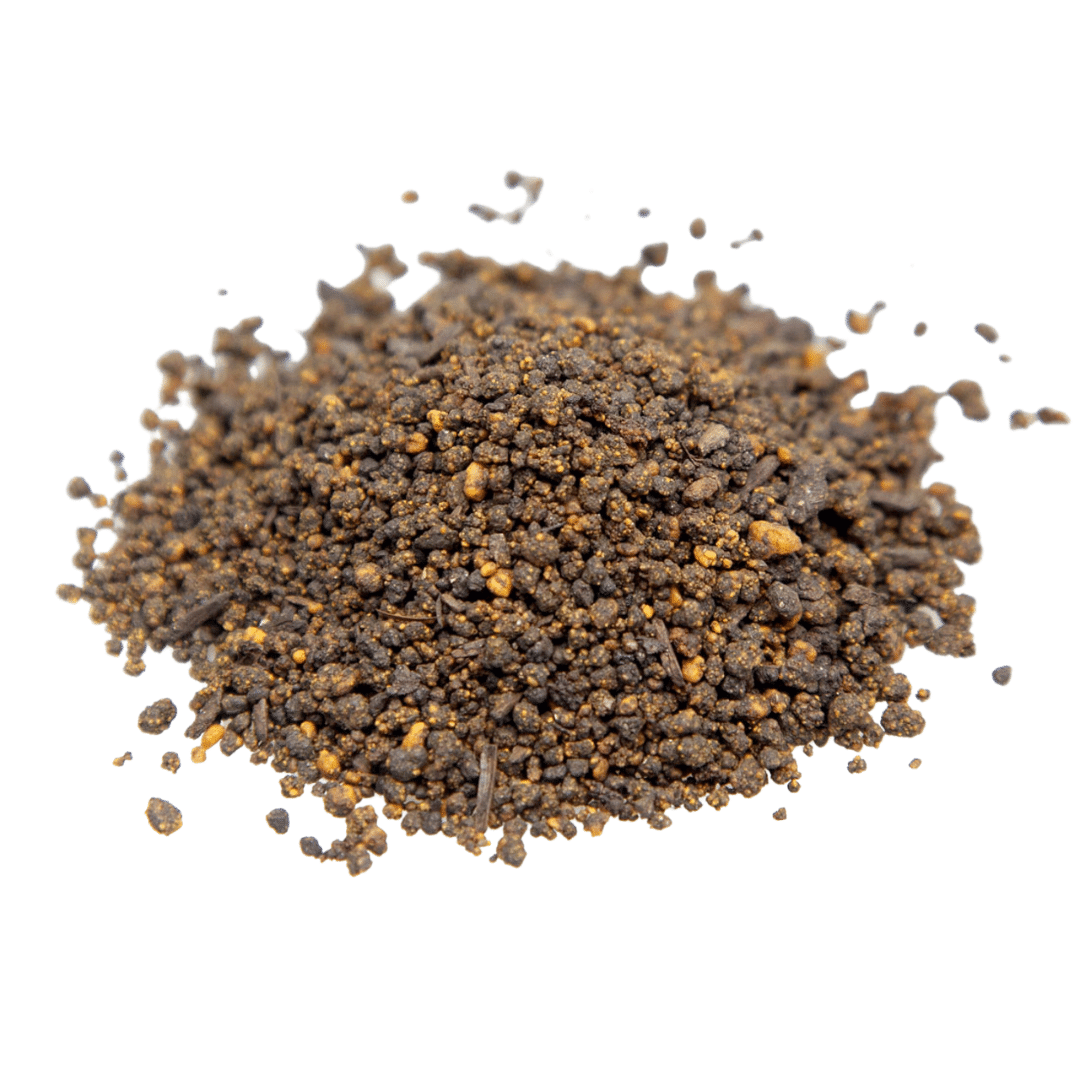If your lawn is overrun with unsightly dandelions and crabgrass, you may have thought of purchasing a commercial herbicide to get rid of these pesky weeds. And with so many weed killer products to choose from, the easy route would be to choose a "complete" weed killer that features the unwanted weeds you're dealing with on the product label. What could go wrong, right? (Related: Keeping up With Weed-free Lawns: The Strongest Weed Killers to Use)
While you may enjoy the satisfaction of seeing the weeds start to wilt in no time– you may also notice brown patches taking over your lawn in some cases. This means the weed killer you've chosen may have contained toxic ingredients that are harmful to your grass.
What are Grass-safe Weed Killer Ingredients?

In general, organic weed management products (contact, non-selective herbicides) are considered safe to use for healthy grass. But, this doesn’t translate to 100% of all cases. They may also affect or momentarily discolor some turfgrass. Applying organic herbicide is best done on young weeds. If necessary, you will need to follow repeated applications as per the product label's instructions.
Some active ingredients common in these products include:
(Further Reading: Herbicide Options for Managing Common Lawn Weeds)
Important note: The Organic Materials Review Institute (OMRI) sets guidelines for reviewing suitable product ingredients in organic gardening. That said, you may want to keep an eye out for an “OMRI-listed” label to ensure that your organic weed killer is safe for use. If unsure, you can also search for specific products or ingredients on the OMRI website.
4 Popular Weed Killer Ingredients that are Safe for Grass
Let’s take a closer look at the common weed killer ingredients that won’t harm your healthy grass.
Corn Gluten
A pre-emergent herbicide ingredient, corn gluten, works on germinating plants to prevent their growth. It is a by-product of ethanol production and is mainly composed of a natural protein derived from the endosperm of maize kernels.

Pelletized corn gluten

Granulated corn gluten
Some homeowners also prevent new weeds from sprouting up on their lawn by using corn gluten– but they will need to do so early in the spring before weeds start to appear. Apply corn gluten at least six weeks before your grass seed if you are creating a new lawn or overseeding bare spots in your existing turfgrass. Note that because corn gluten is non-selective, so it will also prevent grass seeds from sprouting.
Horticultural Vinegar
Since it can harm weeds quickly, vinegar has long been the main component of DIY weed killers. Household vinegar has been shown to be effective against young weeds when used in regular quantities (4 to 5% acetic acid). Horticultural vinegar, in particular, can inflict more damage with its higher acetic acid content (20 to 30%).
Research suggests that horticultural vinegar is more effective on young weed seedlings than established weeds. It also works best in arid locations (like Texas, Arizona, or California).
As soon as you notice weeds start to appear, spray certain areas of your lawn with horticultural vinegar. You will typically see visible results within two weeks of germination. The vinegar will stick to the plant better for best results if combined with a surfactant, such as liquid dish soap.
Citric Acid (24%) & Clove Oil (8%)
The next grass-safe weed ingredients we'll talk about in this list are from Burnout Fast Acting Grass and Weed Killer, formulated with Citric acid (24%) and clove oil (8%). This can effectively eliminate weeds when using vinegar just doesn't cut it as a safer, non-toxic alternative.


Spray a mixture of water and Burnout solution on dandelions, thistles, pigweed, moss, morning glory, ragweed, clover, quack grass, and other weeds– and wait for them to wither and die. Within 24 hours after applying Burnout, you can already replant the area because it is formulated to decompose swiftly in the soil. Fortunately, pets can also access the treated area safely.
Important note: Remember that Burnout kills grass too, and it is not discriminating. As such, use it only as a spot treatment on lawns.
Citrus Oil
Citrus oil, commonly referred to as D-limonene, is the main component of many environmentally friendly household cleaners thanks to its capacity to dissolve grease and grime efficiently.
The waxy coating that helps grass retain moisture is easily destroyed, which also works well on weeds. It is derived from the significant component of citrus peel essential oils, which works well as an organic weed killer when diluted with other ingredients. DIY preparations of pure D-limonene and water can be expensive. But, many people have discovered that combining a citrus-oil-based cleanser with regular vinegar, water, and dish soap works quite well.
Choosing an Organic Weed Killer to Get Rid of Weeds Safely
One of the most efficient, all-natural ways to eliminate weeds from your lawn, garden, and outdoor area is by using an organic weed killer. This increases the chances of avoiding any damage to your healthy turfgrass.
The best organic weed killers are free of harmful substances such as Glyphosate or Paraquat. Instead, they use organic materials: vinegar, essential oils, or a soap solution with herbicidal properties. If you have children or pets running around at home, you may want to use an organic weed killer that is safe to use even with their presence.
Using Organic Weed Killers: The Right Way
A weed killer product may be designed for organic gardening purposes, but it doesn't mean it won't have any adverse effects of some sort. To ensure you get the most out of your weed killers while also keeping your healthy grass safe, take into consideration the following advice:
Other Methods for Organic Weed Control
Post-emergent weed treatments won't be able to help you prevent future weeds from growing on your lawn. Fortunately, there are other ways you can deal with them in the long run.
